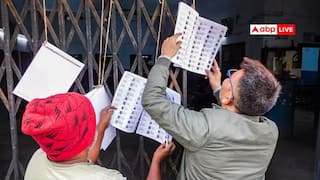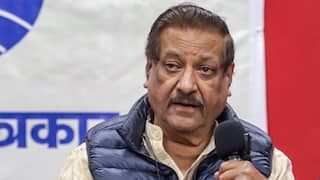Opinion | Any New Broadcasting Law Has Task Cut Out: Curb Reality TV Spin, Prevent ‘Opinion Zombie’ Apocalypse

Any keen observer of Indian news media will attest to the fact that there has been a disturbing decline in its ability to play the roles for which society needs media.
While the Modi government’s draft broadcasting bill stands withdrawn in its current form, the country does need a regulation overhaul in this regard. The new draft of the bill particularly needs to look into seven issues to make it truly transformative. These include tackling the rise of ‘opinion zombies’ reared on news media that increasingly resembles reality TV. Invasion of media space by corporate interests is among the other issues, as are the threats grassroots journalists face in the line of duty.
-
Government Influence
The relationship that the media is expected to have with the government is that of a ‘frenemy’. That of full respect and zero fear. Media should be attached closely with the issues, but detached widely from the vested agendas. This relationship has seen many variations in the 77 years since Independence, going to great troughs at the time of the Emergency. However, barring that, by and large, there has been a bipartisan consensus that, in a democracy, informed criticisms are a great way to release pent-up frustrations, capture early where the heat is building up, and generally benefit from the diversity of opinions towards policy formulations. It also helped keep leaders grounded and real. The media was a safety valve, a pressure gauge, an opinion survey and a bookkeeper. Neutrality helped the media keep trust and relevance – very useful for governments, for the right agendas.
However, somewhere on the way, the expectations of how the media should behave changed. It started getting subjected to the same brute logic of power – political, administrative, financial, trolling – as many other arms of the polity due to a shallow, egocentric, cynical and dismissive understanding of its role.
An important leverage towards that is the ad-budget allocation itself. A complete alignment with the government of the day promises the whole package – ad money, access to stories and interviews, and protection from laws that can be stretch-applied to punish. In other words, an offer too good to refuse for many.
Any broadcasting bill needs to incorporate ways to decouple ad allocations from editorial stance. It also needs to find a nuanced and calibrated system to protect journalists, editors and media companies from being vengefully ravaged by regimes they fall foul of.
-
Professional News Business Models Are Under Threat
At the heart of mass media lies the professional news media representing deep and objective research, system knowledge, big-picture wisdom, and commitment to constitutional values.
The success of global platforms is weakening the business models of conventional newspapers and TV. They are forced to compete with native, pure-play news outfits and freelancers with much lower barriers to entry. A lot of the ad pie is taken by user-generated content rather than professionally generated content. A lot of ad money goes out of the country with little reinvestment back. While crowd-sourced truth can also sometimes be a useful check and balance on vested agendas, the extreme fragmentation may have the undesirable effect of lowering organised investments in original research, quality control, and credible knowledge systems.
It also means editors being compelled to toe the commercial line in a financially insecure environment; editorial content increasingly trying to match the knee-jerk reactive nature of social media, and politicians with a lot more choice having less respect for professional media etc.
With all this in mind, there sure is a space to support and subsidise neutral and high-quality editorial research and talent – whether in conventional media or online, so that the quality of media thinking can be maintained.
-
Spreading Religious & Caste Hatred
Sections of Indian media have been playing an active role in triggering and propagating hate around sensitive emotional fault lines. Certain TV news channels often look to force-fit an issue into a communal one to suit their trade interests.
Ordinary people decide what is important for the country and what is not (and also what is right and what is wrong) under the influence of what’s in the headlines and what share of attention something manages to garner. The Constitution of India allows certain special powers to media as the neutral guardians of this societal priority and conscience. The fact that there is brazen flouting of this social contract, where a media vehicle is effectively trading this agenda-setting power for money and other unsavoury interests, needs closer attention in the bill.
What constitutes hate and what doesn’t can’t be decided by committees arbitrated by partisan regimes. Any code of content propriety must be formulated primarily by editorial guilds, with representation of retired Supreme Court judges, highly respected civil servants and legislators approved by both the government and the Opposition. The mandate to assess propriety must also sit with a tribunal that reflects a politically neutral composition. A national ‘truth’ commission can be created with a constitutional remit to oversee these bodies for codification, enforcement – and also public education.
-
Pervasive Fake News Factories
The fear about pervasive fake news is not that everyone starts trusting lies, but that no one trusts anything after a while – offering fertile ground for raw instincts, emotions and prejudices. Social media propaganda and fake news websites perpetuated by political parties and affiliated organisations, of course, take the cake on this issue. People believe what they ‘feel’ like believing, thus the raw prejudices arbitrating the ‘truth’ for many.
Armies of retired people, sedentary workers, youngsters and homemakers with ample time in their hands crave a relentless supply of stimulating reaffirming content, with little consideration for objectivity, balance – or consideration. Stuck in data tunnels that show more and more of what you like, the biases get so hard-cast that the doors of the mind are closed shut. You become an ‘opinion zombie’ in a dark narrow room, bound with people who are only echoing each other. Generative AI may just take this fakery to the next level.
The most disturbing aspect is how a section of professional news media, in their brutal race to be the first – or simply to hop aboard the gravy train of sensationalism – ends up flouting the lines between verified and fake news. A reputation carefully forged over a lifetime can be destroyed in a minute, a non-issue can be made an issue by headlines and breaking news screamed hoarse day and night, and innocent people and leaders can become mere cannon fodder in this war of ratings and value-free rupiya.
A broadcasting bill, aided by a neutral self-governing national truth commission, can codify what constitutes the fake, and can work to both educate the masses and enforce the code. In cases of significant damage, major downside risks must ensue for organised players who brazenly flout the code.
-
When Corporate Interests Clash
A lot of Indian media is now owned by vast conglomerates involved in multiple industries. This allows situations where the media’s powers may be used to serve the larger corporate interests. With no specific commitment to the media business, or a legacy of excellence in it, the values that protect its greater societal role and justify its constitutional status can often be far down their priority list.
There is another dimension to this. With the bulk of the revenues dependent on advertising, the media is prone to being manipulated by advertisers. In fact, money for editorial coverage has been normalised in a section of the media. A lure for ‘money with strings’ also serves as a major disincentive for neutral agenda-setting.
A line clearly needs to be drawn by an Act of Parliament, as the need may be, in terms of both ownership rules for media companies as well as the boundary between editorial and sales. Editors need to be allowed to protect their space, passion and self-respect.
-
Protect The Spirit Of Debate
Many news channels today are more entertainment channels with their focus on melodrama, fiction and sensationalism, somewhat like reality TV. The plot, the heroes, the villains and the dialogues seem preset even before the live debate comes alive. The shrill, jarring, mindless cacophony of these non-debates can often serve to misinform rather than inform; can uneducate the otherwise educated; and misrepresent futile, angry, quarrels as the path to arrive at the truth. The only truth coming out of such debates is the TRPs and ad money.
There is a case for news channels to behave like news channels should, in line with the spirit in which the Constitution gives them special powers. If they want to behave like live entertainment channels or reality TV, they should be classified as such, provide frequent disclaimers, and lose protection under laws meant for news media.
-
Stop Violence Against Journalists
India today ranks 12th in the world in terms of unsolved murders of journalists, according to the Global Impunity Index. Many of them are killed at the hands of illegal mining mafia, land thieves, and those involved in organised child labour etc. To murder is to censor in the most extreme way. Grassroots journalists are often among the very few watchguards of the Constitution and cosmopolitanism, in faraway towns and rural areas. Many of these areas often act as closely managed ‘autonomous’ systems run by local potentates, not very unlike the fictional Mirzapur.
Violence against journalists, even in small numbers, can eviscerate this flawed yet functioning system, further capsuling and decoupling ‘Bharat’ away from ‘India’. This clearly needs urgent measures as part of a holistic broadcasting bill.
Media needs to be good business, but media can’t be all business. Whoever controls the media controls the mind. To have a free mind is to be a complete person. And to have a free media is the portal to a truly free country.
Prashant K. Umaputra is an author, customer strategist and CEO, and a commentator on media, economy and strategy
[Disclaimer: The opinions, beliefs, and views expressed by the various authors and forum participants on this website are personal and do not reflect the opinions, beliefs, and views of ABP News Network Pvt Ltd.]


























